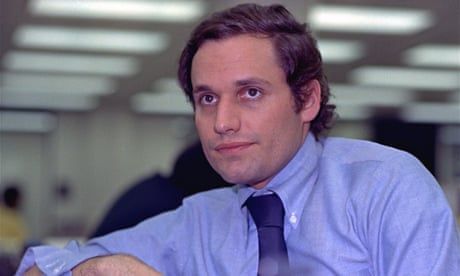
Woodward’s latest page turner takes you inside the room – but can he still claim to be an impartial fly on the wall?
Bob Woodward is probably the best-known journalist in the world. He built his reputation on Watergate, of course, and just about everything he and Carl Bernstein wrote about it turned out to be entirely accurate: including the existence of Deep Throat, who was sometimes thought to be a “Woodstein” invention, but was much later revealed to be a top FBI official. If you talk to Woodward on deep background, he won’t break trust with you and leak your name; so hundreds of senior officials and politicians over the years have had the confidence to speak to him on condition of anonymity. In War, as in every other one of Woodward’s 22 books (this one billed as a “behind-the-scenes story of three wars – Ukraine, the Middle East and the struggle for the American Presidency”), you can have total faith in the accuracy of every quotation he provides.
But there’s a problem. Although the confidences which Woodward passes on to us are no doubt exactly as his interviewees gave them to him, how do we know these were the words originally spoken in the moment being recalled? Reading War, like so many of the other monosyllabically titled books Woodward has given us, you find yourself wondering if some of the key stuff isn’t l’esprit de l’escalier – the things people wish they’d said; or maybe wish they’d said more clearly and toughly and quotably, instead of mumbling or trailing away into aposiopesis. Personally, I prefer the rigorous methodology of Norma Percy’s brilliant television documentaries (The Death of Yugoslavia, Putin vs the West, Inside Europe: Ten Years of Turmoil, etc). She interviews everyone again and again, on the record, then plays each interviewee’s words back to the other participants. They can then answer, “Well, he/she may say that now, but that wasn’t what they said at the time.”
Continue reading...